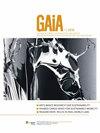Plastic packaging: Are German retailers on the way towards a circular economy? Companies’ strategies and perspectives on consumers
IF 1.9
4区 社会学
Q4 ENVIRONMENTAL SCIENCES
引用次数: 0
Abstract
German retailers commit to promoting a circular economy (CE) to tackle the plastic crisis. Their strategies and perspectives on the role of consumers are qualitatively analyzed based on sustainability reports and press releases. Strategies include means of reduction and reuse but focus on recycling. Consumers are rather seen as barriers to realizing a CE.Environmental pollution caused by single-use plastic packaging waste is one of the major problems of our time. As a means of tackling environmental damage from plastic, many companies are voluntarily committing to promoting a sustainable use of plastic and the idea of a circular economy (CE). Among these companies, retailers play an interesting role. They are the point of sale of different manufacturers’ products and, thus, are in direct contact with consumers. This paper qualitatively analyzes retailers’ plastic strategies as published in sustainability reports and press releases. In particular, their understanding of the concept of a CE, their perspective on the CE-related role of consumers, and the consistency of their objectives regarding CE goals are investigated. The results indicate that there is a strong focus on recycling, although the retailers also consider means of reduction by avoidance and reuse. Consumers are rather seen as a barrier to implementing a circular economy at all three levels (reduction, reuse, recycling) and are assumed to need waste management education.塑料包装:德国零售商正在走向循环经济吗?公司的战略和对消费者的看法
德国零售商承诺促进循环经济以应对塑料危机。根据可持续发展报告和新闻稿,对他们关于消费者角色的战略和观点进行了定性分析。战略包括减少和再利用的手段,但重点是回收利用。消费者被视为实现CE的障碍。一次性塑料包装垃圾造成的环境污染是我们这个时代的主要问题之一。作为解决塑料对环境破坏的一种手段,许多公司自愿致力于促进塑料的可持续使用和循环经济的理念。在这些公司中,零售商扮演着一个有趣的角色。它们是不同制造商产品的销售点,因此与消费者直接接触。本文对可持续发展报告和新闻稿中发布的零售商的塑料战略进行了定性分析。特别是,调查了他们对CE概念的理解,他们对消费者CE相关角色的看法,以及他们关于CE目标的目标的一致性。结果表明,尽管零售商也考虑通过避免和重复使用来减少浪费,但他们非常重视回收利用。消费者被视为在所有三个层面(减少、再利用、回收)实施循环经济的障碍,并被认为需要废物管理教育。
本文章由计算机程序翻译,如有差异,请以英文原文为准。
求助全文
约1分钟内获得全文
求助全文
来源期刊

Gaia-Ecological Perspectives for Science and Society
ENVIRONMENTAL SCIENCES-
CiteScore
2.30
自引率
18.80%
发文量
43
审稿时长
>12 weeks
期刊介绍:
GAIA is a peer-reviewed inter- and transdisciplinary journal for scientists and other interested parties concerned with the causes and analyses of environmental and sustainability problems and their solutions.
Environmental problems cannot be solved by one academic discipline. The complex natures of these problems require cooperation across disciplinary boundaries. Since 1991, GAIA has offered a well-balanced and practice-oriented forum for transdisciplinary research. GAIA offers first-hand information on state of the art environmental research and on current solutions to environmental problems. Well-known editors, advisors, and authors work to ensure the high quality of the contributions found in GAIA and a unique transdisciplinary dialogue – in a comprehensible style.
 求助内容:
求助内容: 应助结果提醒方式:
应助结果提醒方式:


